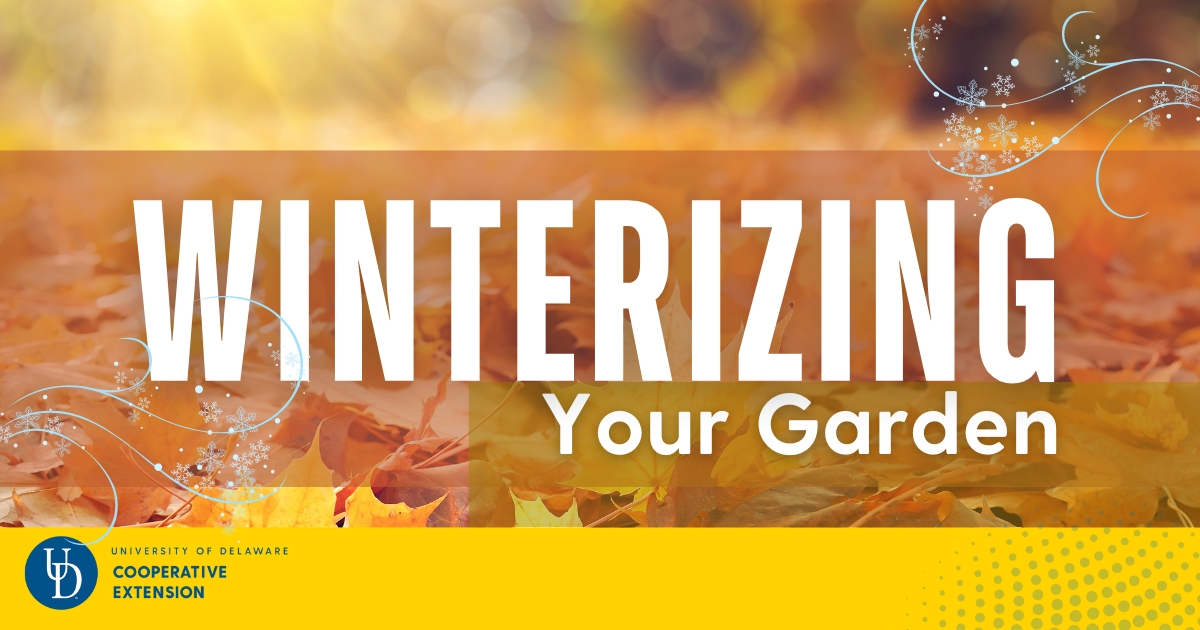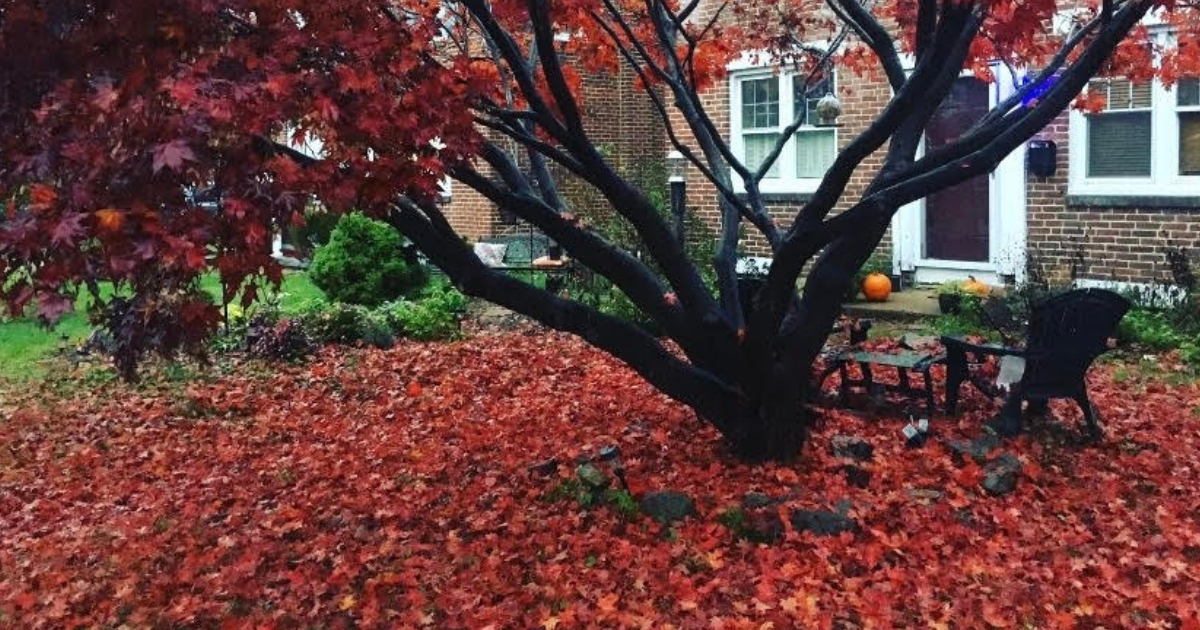
Category: Cooperative Extension

Winterizing Your Garden
October 01, 2024 Written by: Susan Graves, Delaware Master Gardener, New Castle County
Winter is a time of rest. When we think of hibernation, we tend to think of bears snuggling into a cozy cave, their bellies full of food and ready to sleep til spring. Look to the skies to see birds flying south for the winter: do all birds end up in the Caribbean, sunning themselves to return in spring?
Aside from hibernating in a deep sleep or leaving the area, what do wildlife creatures do in the cold winter months?
Your backyard can be home to plenty of active wildlife in winter! Squirrels, deer, opossums, rabbits, mice and beavers do not hibernate and need to eat during winter.
Not all birds fly south; in Delaware we will continue to see Robins, Cardinals, House Finches, Gold Finches and Starlings as they eat and continue to live out the winter right here in our backyards.
Honeybees, termites, ants, ladybeetles and spiders are also overwintering in our yards and will become more active in spring.
Amphibians such as frogs, mayflies and dragonflies are just a few of the critters that will find a pond and take cover beneath the surface until the spring thaw.
So what can we do to help these important living creatures make it through the winter?
We don’t have to do much. In fact, in most cases doing NOTHING is exactly what we should do!

Ways you can “do nothing:
Don’t rake your leaves! Fallen leaves provide important shelter for over-wintering creatures like caterpillars, spiders and ladybeetles. They also provide a natural mulch that will decompose to add important elements to the soil. Any leaves removed from your walk or driveway can be added to your gardens.
Don’t deadhead or cut back your flowers – the seeds in the flower heads feed all sorts of animals, including birds. Old mulch and fallen branches provide a nest for small creatures to rest and hide from predators. Save your garden clean-up for early spring.
Don’t cover your pond, and don’t break any ice that may form on your pond (the shockwave can kill the fish and other creatures waiting out the winter). A floating 2-liter plastic bottle will create space for ice to expend and contract and will allow for oxygen to flow and release toxic gases that may build up under the ice. If you do have a need to create a hole in frozen ice, a carefully-placed pan of hot water on the surface will do the trick (DO NOT pour boiling water on the ice as this can harm or kill fish).
Don’t pick those last few peppers or green tomatoes from your food garden – creatures will find them.
Don’t spread rock salt or other chemical compounds that are dangerous to wildlife. Try covering your front steps with a tarp if snow or ice is coming, then lift the tarp after the storm has passed.
Some do’s include:
Keep your birdfeeders full of good quality bird seed. Set out suet cakes that provide high-fat energy for birds.
Provide a water source if possible. Fresh water during a freeze is a necessity. A moving-water birdbath or bowl of water with a floating battery-powered fountain will be a welcome and important addition to your backyard.
Craft with your children and grandchildren:
Create an all-natural wreath using the dried flowers from your garden and hang it outside.
The traditional pinecone birdfeeder always works – cover a natural, untreated pinecone in natural peanut butter and roll in birdseed before hanging outside.
As the weather gets colder and resources become scarce, occasionally toss unsalted nuts, sliced apple, carrots or leaf spinach outside and see if it is enjoyed by animals foraging for food. (This should be done sparingly to avoid wildlife becoming dependent on handouts.)
These tips for winterizing your garden will help keep our environment and wildlife thriving through the winter and help set up a healthy start for spring. University of Delaware’s Cooperative Extension and Delaware Master Gardeners are always here to help. For more information, contact the Master Gardener Helplines at https://www.udel.edu/academics/colleges/canr/cooperative-extension/environmental-stewardship/master-gardeners/garden-helpline/
